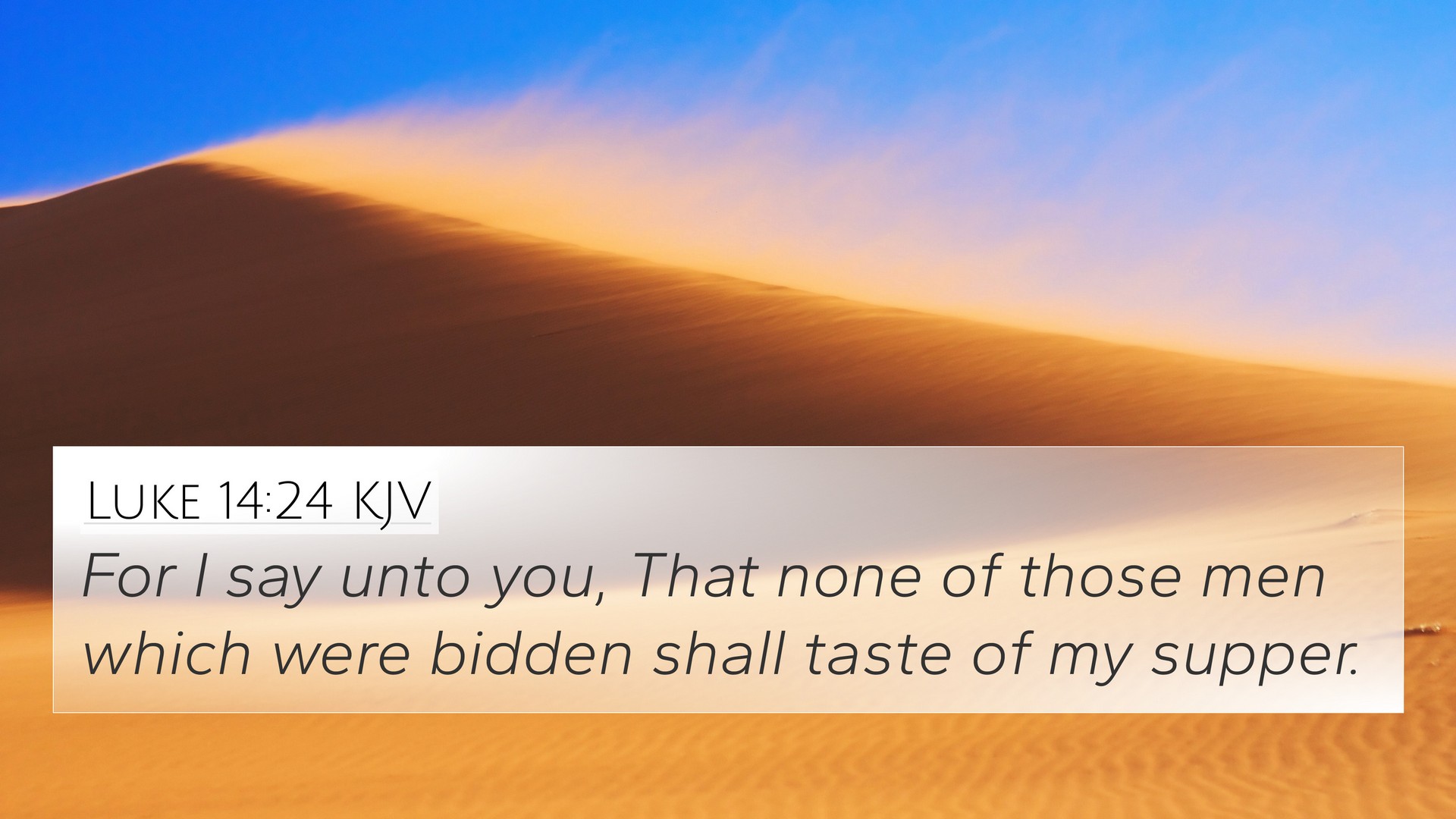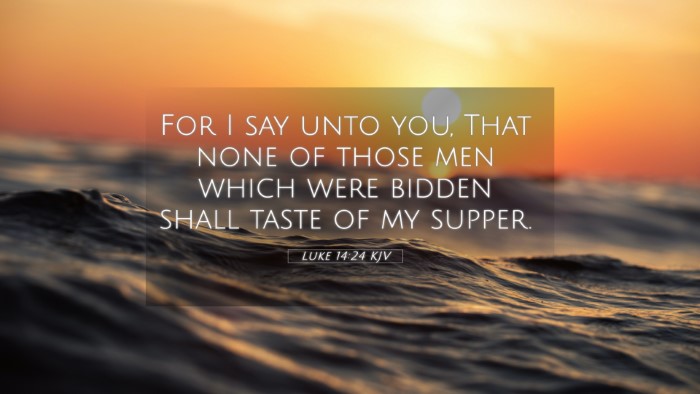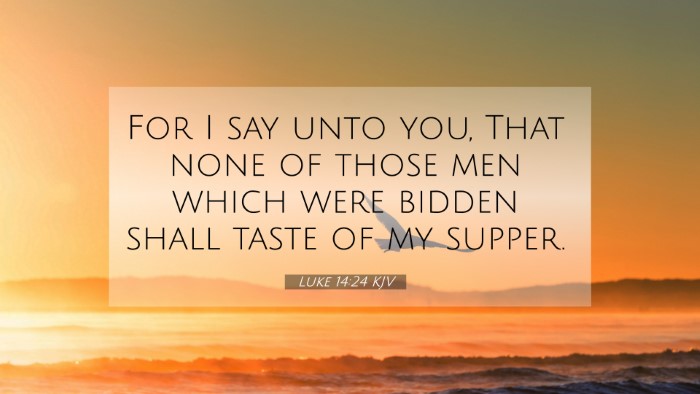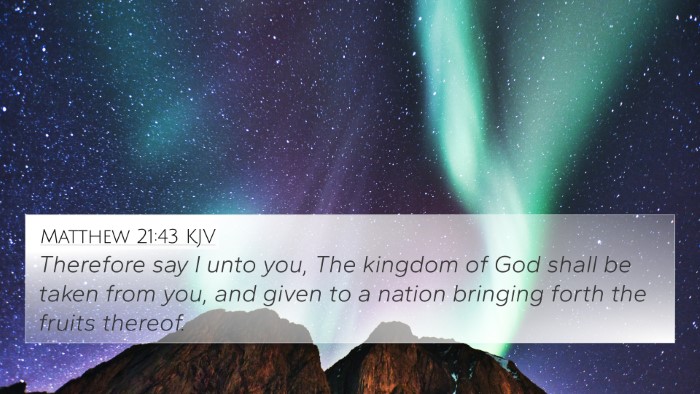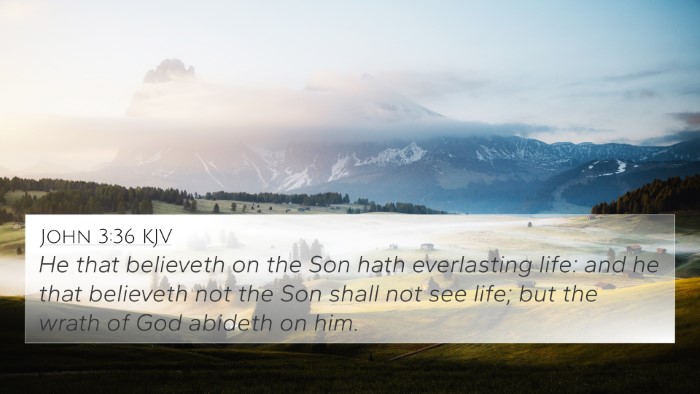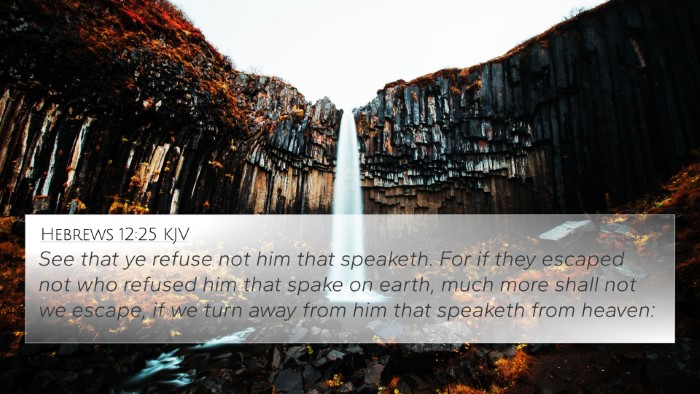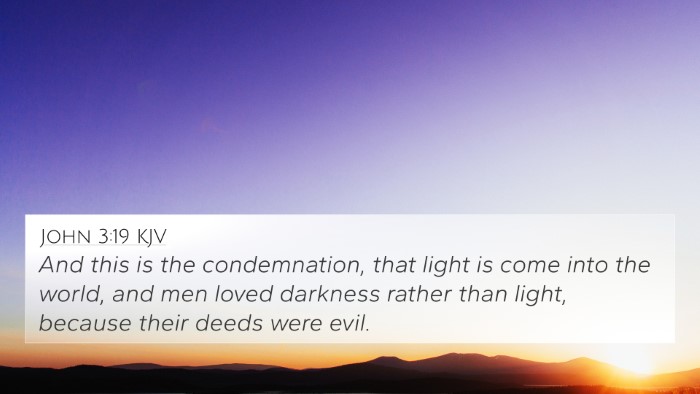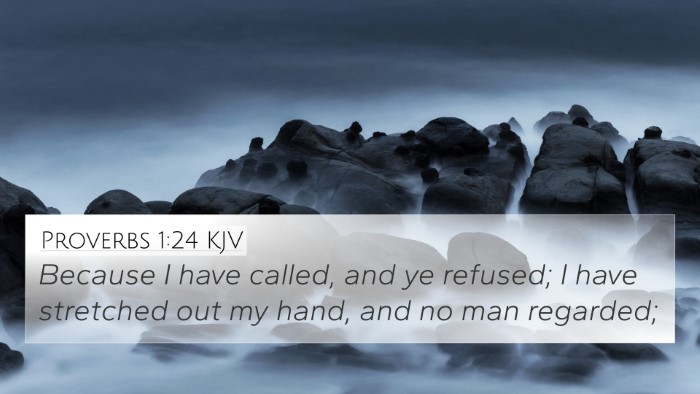Interpretation and Meaning of Luke 14:24
The verse Luke 14:24 states:
"For I tell you, none of those men who were invited shall taste my supper." (NKJV)
This passage is part of a parable told by Jesus, known as the Great Supper, which illustrates the rejection of His message by the Jewish leaders and the invitation extended to the Gentiles. The verse concludes the parable, emphasizing the seriousness of responding to God's invitation.
Summarized Insights from Public Domain Commentaries
Combining insights from Matthew Henry, Albert Barnes, and Adam Clarke, we provide a comprehensive understanding of this verse:
-
Matthew Henry:
He emphasizes the nature of the invitation extended by God. The supper symbolizes great blessings and the spiritual feast offered to those who accept His call. Henry highlights the consequences of rejecting this invitation, signifying spiritual death and separation from God.
-
Albert Barnes:
Barnes points out that the invited guests represent those who were first called through Israel’s covenant with God. Their excuses illustrate how material concerns can distract from spiritual obligations. Barnes notes that the verse serves as a warning against taking grace for granted and the urgency of responding to God's call.
-
Adam Clarke:
Clarke elaborates on the implications that those 'invited' but unresponsive lost their opportunity for fellowship with Christ. He reminds readers that God's invitation is broad but selective, as it is ultimately the heart's response that determines acceptance into His kingdom.
Cross-Referencing Biblical Texts
Understanding Luke 14:24 is enriched by exploring its connections with other scriptures, providing a broader context. Here are several related passages:
- Matthew 22:1-14: The Parable of the Wedding Feast illustrates rejection and acceptance in the kingdom.
- Luke 13:28: "There will be weeping and gnashing of teeth..." speaks to the consequences of exclusion from God's banquet.
- John 6:35: Jesus declares Himself as the bread of life, emphasizing the importance of partaking in His spiritual nourishment.
- Revelation 19:9: "Blessed are those who are invited to the wedding supper of the Lamb," highlighting the eschatological fulfillment of God's invitation.
- Isaiah 65:12: This Old Testament verse foreshadows the notion of those who have been invited yet reject God's offer.
- Luke 15:24: The parable of the Prodigal Son, where the father joyfully receives his son, illustrates the joy of accepting the invitation to be reconciled.
- Romans 10:21: "All day long I have held out my hands to a disobedient and contrary people," reflecting the heartbreak of rejected divine invitations.
Thematic Bible Verse Connections
When studying Luke 14:24, it is vital to understand its place within the greater narrative of invitation and rejection in the scriptures:
- Invitation & Rejection: This is a central theme, depicted across the Testaments. Jesus continually emphasizes the crucial choice individuals must make when invited into fellowship with Him.
- Human Excuses: The excuses given by those invited represent a common human condition of prioritizing earthly matters over spiritual commitments, a lesson echoed in many other parables.
- Universal Salvation: The shift to inviting the poor and marginalized symbolizes God's love reaching beyond His original covenant people—this theme is crucial for understanding the Gospel's inclusivity.
Bible Study Tools for Cross-Referencing
For those seeking to delve deeper, various tools and methods can enhance your Bible study:
- Bible Concordance: A helpful resource for locating verses by keywords and themes.
- Bible Cross-Reference Guide: Provides specific connections between verses, facilitating comparative Bible verse analysis.
- Cross-Referencing Bible Study Methods: Utilizing thematic or narrative methods to explore connections within scriptures.
- Bible Reference Resources: Books and online tools that catalog resources for cross-referencing scriptures.
Conclusion
Luke 14:24 serves as a powerful reminder of the urgency of responding to God's call. Through collaborative insights from esteemed commentators and related scriptures, we can discern greater depths of understanding about divine invitation and the human condition. This understanding encourages believers to reflect deeply on their responses to God's gracious invitation.
